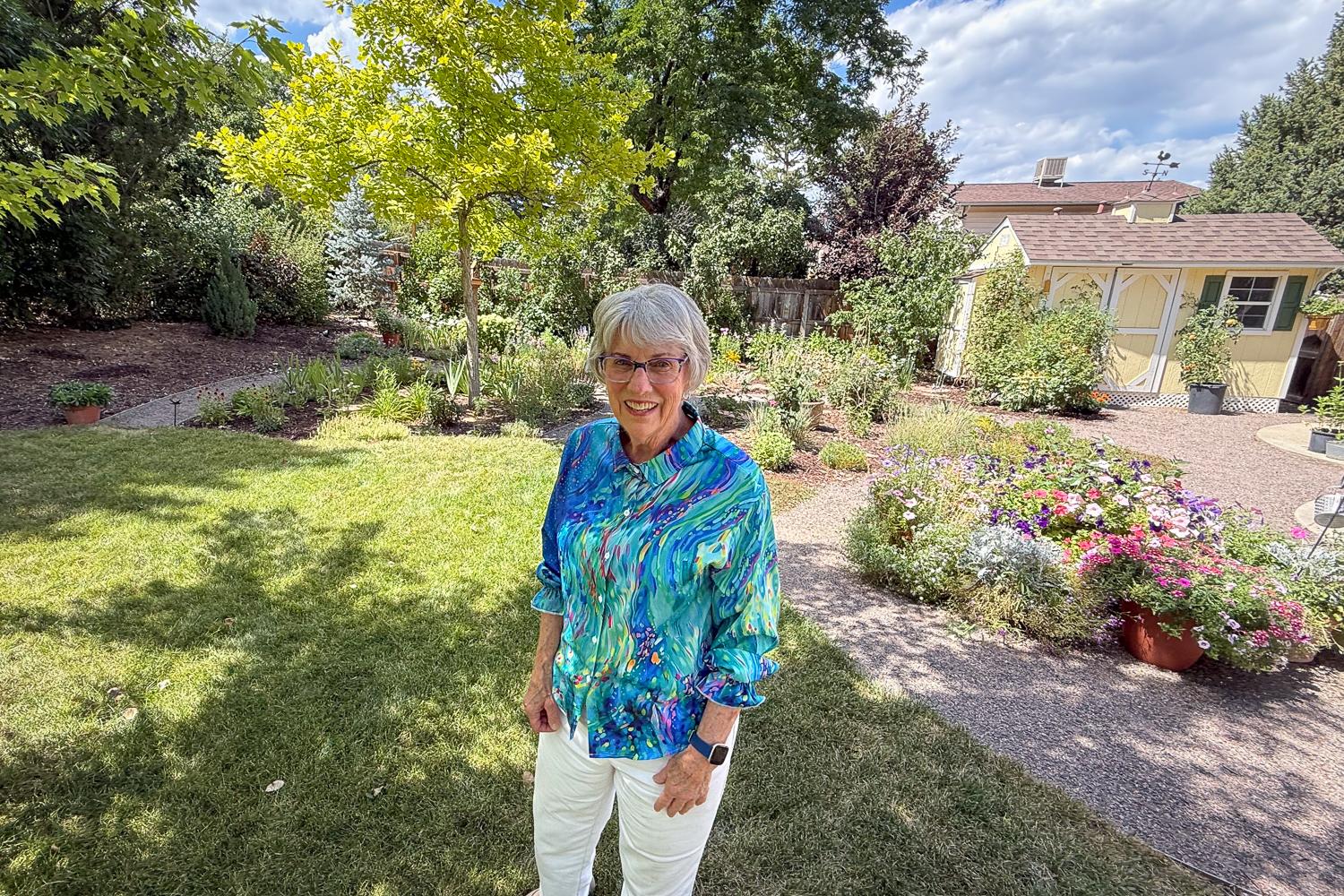
Janet Kester walks through her Littleton garden — a sea of larkspur, cosmos, blue sea holly. She loves the beauty of it. But it’s noticing things like how the blue sea holly changes from a vibrant, cobalt blue to a spiky, thistle-laden silver-blue that gets her mind going.
“I find the science of plants fascinating!” she enthuses.
At 80, Kester is alive with wonder and curiosity at everything around her. In a blouse splashed with color, Kester exudes joy. Not surprising, because she teaches a class on the subject through the University of Denver’s Osher Lifelong Learning Institute, or “OLLI” for short. She’s taught it about 16 times.
“People keep wanting to know more about joy! They want more joy.”
Each year, the institute offers more than 300 courses, some online and some in-person at locations in Denver, Broomfield, Golden and Littleton. This fall, you could be taking “Ten Voyages of Discovery and Survival,” “How Can We End Homelessness in America, “Movie Music: Top Composers and Their Film Scores,” “The Fantastic Humanity of Ray Bradbury” or “Will the Sun Explode?” There are classes on music and art, history and economics, public affairs and current events.
Kester has also taught classes on racism and on poverty. Her husband died at 65, and though she had plenty of friends, Kester said OLLI was a mecca.
“It absolutely filled a void of intellectual stimulation,” she said. “That was something I was missing.”
No tests. No homework. Just learning for the fun of it. Curiosity never retires at the 125 Osher Lifelong Learning Institute initiatives on college campuses across the country. Colorado has two: one at the DU and one at Colorado State University in Fort Collins. There are a host of other lifelong learning programs at other universities in Colorado.
Why keep learning as you age?
Lifelong learning — the continuous acquisition of knowledge, skills, and competencies — has emerged as a key factor in healthy aging. For older adults, it protects against cognitive decline and supports emotional resilience and social and physical health. Evidence from a variety of meta-analyses and longitudinal studies show long-lasting impacts.
Lifelong learning courses can also help older adults find meaning and purpose in their lives.
“I think people retire and they get through their short bucket list and wake up and think, ‘OK, what's next?’ ” said Laura Uzzle, co-executive director of marketing and communications, with the Osher Lifelong Learning Institute at DU. “And we know that having a sense of purpose, that having some intellectual stimulation is, is good for your mental and physical health.”
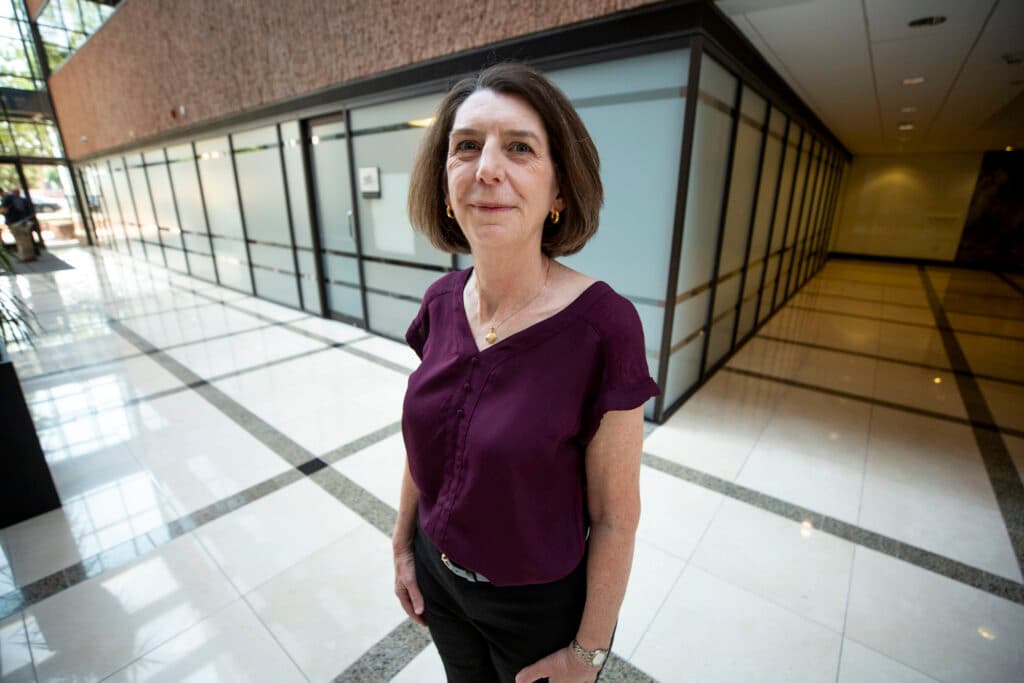
Janet Kester said OLLI has given her more conversational prowess. She likes challenging herself with courses outside her comfort zone, like one on cosmology. When she went into the class she knew zip. Now?
“Not that I could really carry on a very sophisticated conversation, but if I were with some people who knew a little bit about black holes, I think I might understand a little.”
Not like a class full of middle schoolers
Kester spent a lifetime teaching middle school. Here’s what she said is different about OLLI classes: “We are all wanting to be there. And we also have a huge amount of knowledge that we are bringing to the class that young people don't necessarily have.”
She recalls one class where they were discussing deforestation in Africa.
“Well, lo and behold, somebody in the class had spent his entire career in Africa working on that.”
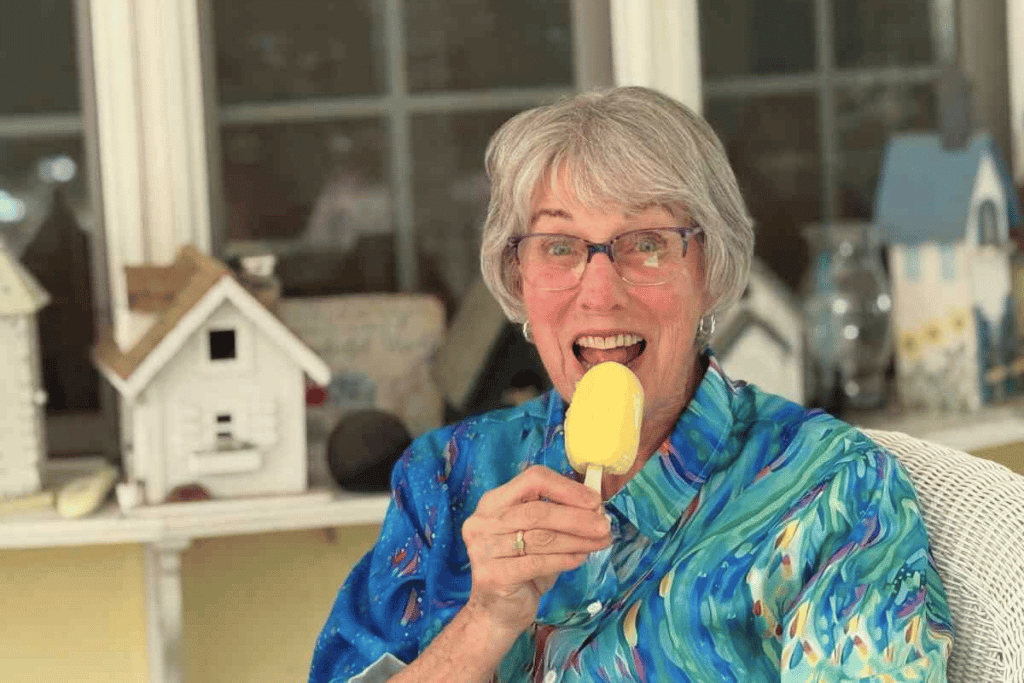
David Lippman, 81, who spent a career in educational publishing and still plays competitive handball, takes and teaches OLLI classes. Back by popular demand, he’ll teach “controversial presidential elections” again this term and Alexis de Tocqueville’s “Democracy in America.”
At first, Lippman was reluctant to take an OLLI course. He’d thought there’d be just people showing off what they know. But he discovered a warm, vibrant, and welcoming community despite the fact that “we have people from different perspectives, we do not all agree.”
He remembers a comment from a retired college geology professor-turned-instructor to the older set.
“She said every year she hoped she had a class where the people were intelligent, they were engaged, they cared about the subject, and now, she gets it every time.”
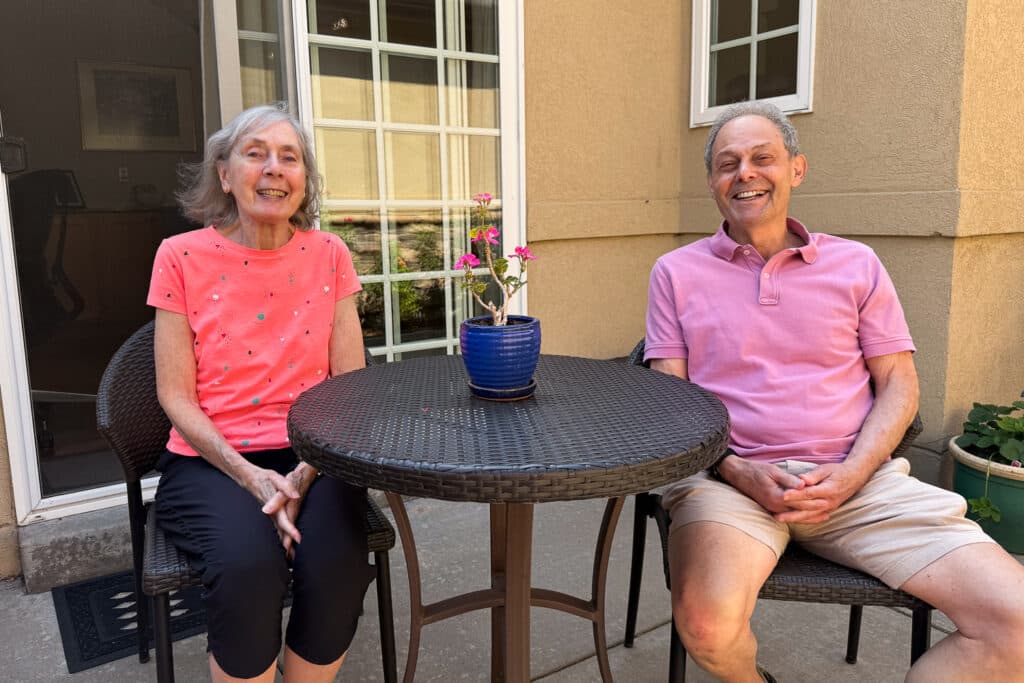
Lippman’s wife, Christina Simpson, said though her favorites are the literature classes, she always takes her husband’s history classes.
Is he a good teacher, a reporter asks?
“He is,” she said. “He’s not twisting my arm! He brings out a depth of thinking that I think is unique and recognized in the groups.”
Anyone can suggest and teach a course
The range of classes offered is immense: gardening, grandparenting, self-driving cars, engineering failures like dams that have fallen apart. Gary Wyngarden, who spent his career in the health care industry, recently taught one on the history of Palestine.
“I loved teaching that,” he said. “You learn so much more when you teach a class than when you just take a class.”
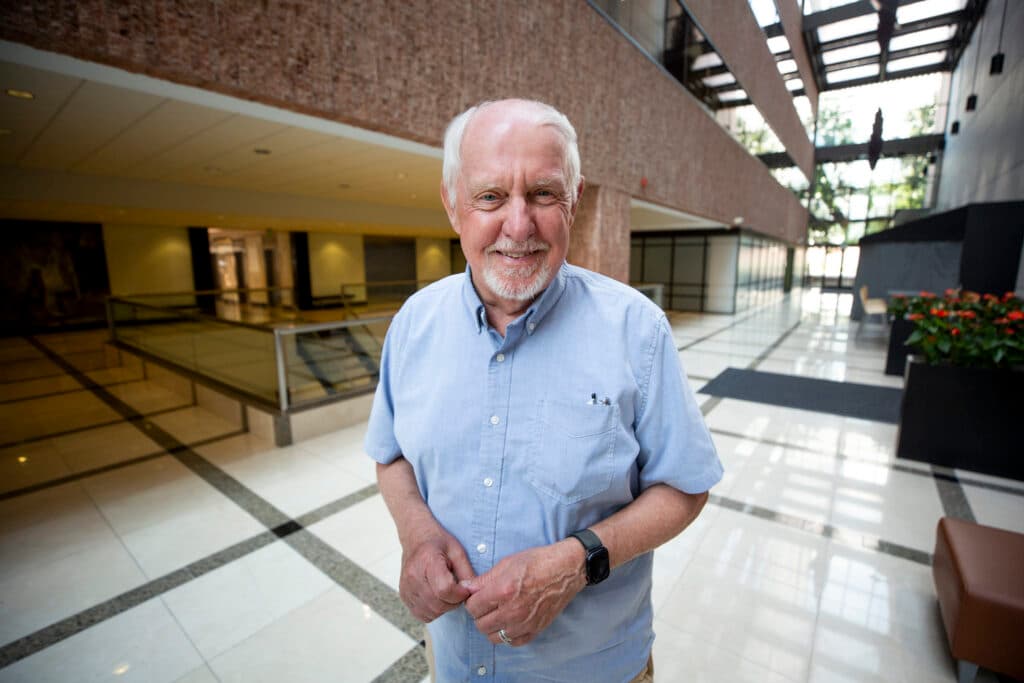
He’s taught courses on what makes life most worth living (“that sold out like crazy”) and on “The Worlds of Gandhi, King and Mandela.” But one of his favorites was a weeklong history of the civil rights movement that took the class to Georgia and Alabama. They met with people who participated in the “Blood Sunday” bridge attack on civil rights marchers.
“Twenty-five people were highly moved by what we experienced,” he said.
In an era of conflict and controversy, Wyngarden is struck by the civility of his classmates — “from a teacher’s standpoint, it’s an ideal situation” — and how his students tell him about how they talk about the class at dinner with adult children — “it ripples, so that’s a big deal.”
He also notices how people find the classes are about much more than learning something new.
“People come for the course but they stay for the community and interaction,” he said.
A social network
Lifelong learning creates a social network, something people lose a lot of when they retire. Janet Kester remembers the day she had lunch after an outing with an OLLI group. The six women just clicked. They’ve been meeting regularly for three years. Kester’s said they’ve been through a lot together – losing a spouse, a child’s suicide, cancer.
“We’ve turned into, I guess you’d say, a support group. We love each other, and that just came from an OLLI outing.”
Chronic loneliness is as dangerous as smoking 15 cigarettes a day, according to the National Institute on Aging. OLLI’s Laura Uzzle sees how the program has changed lives.
“I had a woman come up to me once and tell me that OLLI had saved her dad's life, that after her mom had passed away, he was isolated and lacked purpose and direction and got involved with OLLI and she said the change was remarkable.”
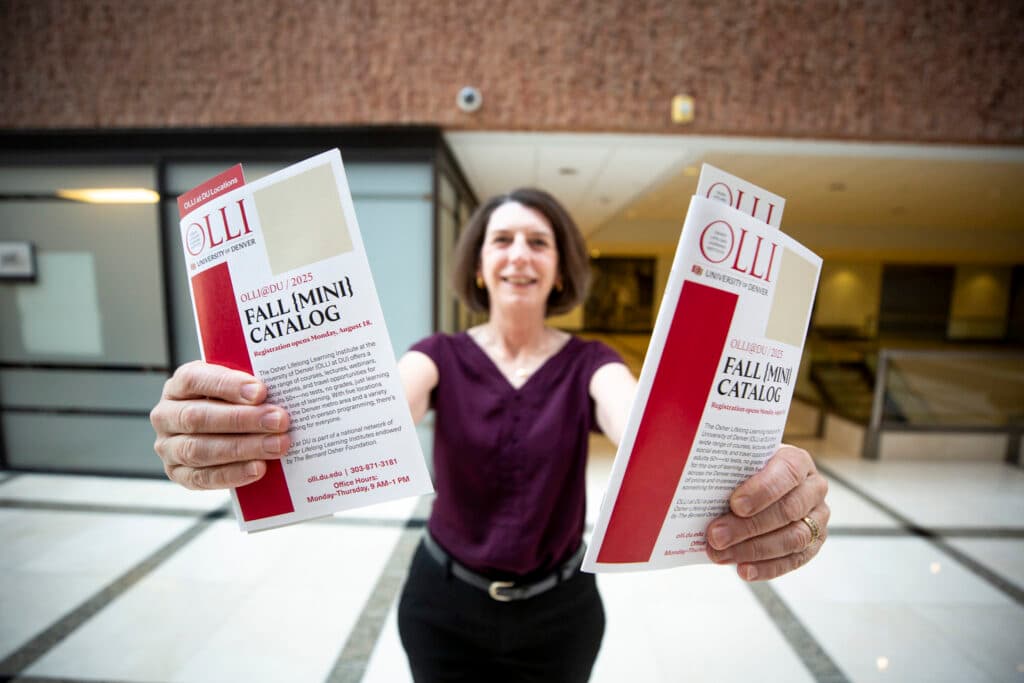
Course prices range from about $50 to $70 and scholarships are available. Membership in OLLI includes some free courses, weekly online fitness classes, and access to what are called shared interest groups, like bridge, skiing, snowshoeing, board games. CSU’s OLLI has more than 1,800 members, while DU’s has over 2,000.
While OLLI’s fall term begins Sept. 15 at DU and Sept. 22 at CSU, there are also other higher education institutions in the metro area and across Colorado that offer lifelong learning classes aimed at older adults and others. CU Denver also has a special program specifically meant to help people nearing or at the end of their primary careers and are navigating transitions in work and life.
Lifelong learning programs across the state:
| University | Program information |
|---|---|
| University of Denver | OSHER Lifelong Learning Institute (OLLI) |
| Colorado State University | OSHER Lifelong Learning Institute (OLLI) |
| MSU Denver | Meritus Scholars (free courses for adults 60+) |
| University of Colorado Denver | - Lifelong Learners (people 60+ can audit two undergraduate in-person classes for free) - Change Makers (helps people at the end of their primary careers navigate transitions in work and life) |
| University of Colorado Boulder | - Auditors program (audit courses for noncredit $250) - Available Credit Courses for Eligible Special Students (ACCESS) (anyone can enroll in a course as a non-degree seeking student, but has full course cost, assignments, group work, quizzes and tests) |
| Colorado Free University | More information here. (low-cost classes on a range of topics) |
| University of Colorado Colorado Springs | Continuing education (listening program for those 55+) |
| Adams State University | Professional continuing education (low-cost personal enrichment classes) |
| Colorado Mesa University | Lifelong Learning at CMU (3 programs including job skills, life skills, and hobbies, low-cost classes for Grand Valley adults 50 and older, and Golden Scholars for 60+) |
| New Dimensions Lifelong Learning Institute | Grand Valley program ($75 for as many of the 90 classes this term as you like) |
| Fort Lewis College | Fort Lewis College Lifelong Learning Lecture Series (free lectures in-person and recorded) |









